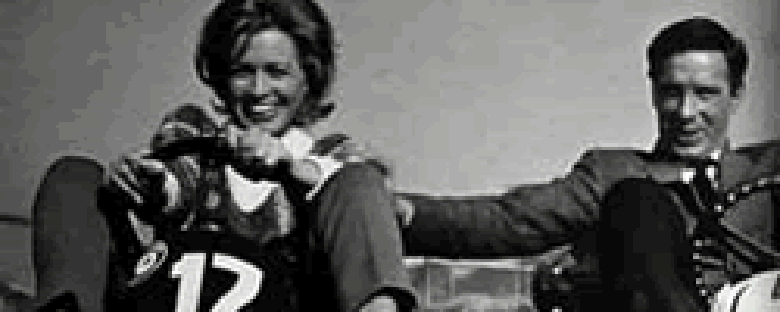Reviews
Don Siegel
USA, 1964
Credits
Review by Rumsey Taylor
Posted on 11 July 2004
Source The Criterion Collection DVD
Don Siegel was firstly interested in directing an adaptation of “The Killers” in the late 40’s, a fruited project given to Robert Siodmak. It is by chance and renewed interest that Siegel approached the same material in 1964, resulting in a film only tangentially similar to its predecessor.
The title credits are scored familiarly by Henry Mancini, whose scoring accompanies similarly themed films of the era (Charade, The Pink Panther, and the television series “Peter Gunn”). Without pretension The Killers occupies its genre and welcomes each convention. It comes, however, late, and such convictions are worn for their familiarity.
The opening scene — the adaptation of the original and entire Hemingway short — is brief: two hitmen enter a rehabilitative center for the blind in pursuit of their target, whom expects them and welcomes their violent ploy. This location — expanded from a diner in the short story — is a metaphoric device: the killers are the only ones who see in this crowd, and will seek the reasoning for their hire to kill a man who makes no attempt to preserve himself.
Siegel’s Killers has no investigator; instead the killers’ perspective is assumed. Again the hitmen, hired anonymously, find their victim’s willing death curious, and choose to find out why they were given such a hefty fee for such an easy kill. There is, of course, a more attractive sum of money involved. They will find it.
Hemingway’s Swede is Johnny, a young race car driver with lots of drive and little intelligence. Like the 1946 film, a woman inspires his corruption. Johnny injures himself in a crash, loses his career, and is given a second chance by his former trophy girlfriend.
The Killers was denied an intended television distribution, a denial made in respect to the Kennedy assassination. In one particularly responsible scene, an establishing shot zooms forward and assumes the point-of-view of an able sniper. The film’s violence is not excessive but is misogynistic. In one incriminating scene a woman is held by her ankles from a hotel window and menacingly threatened.
Lee Marvin, the more intriguing of the titular pair, is obsessed by Siegel. This is because of the premise’s relocation of the protagonist, and results in the film’s faults. Marvin is expectedly unswerving and domineering as a killer-for-hire — he is easily the most entertaining character in the film, yet there is no human element free from corruption to match his wit. In a film rooted in a familiar formula such as this, a good villain must have a nemesis. It is an omission that violates the iconic service of The Killers’ principle villain.
We don’t do comments anymore, but you may contact us here or find us on Twitter or Facebook.



